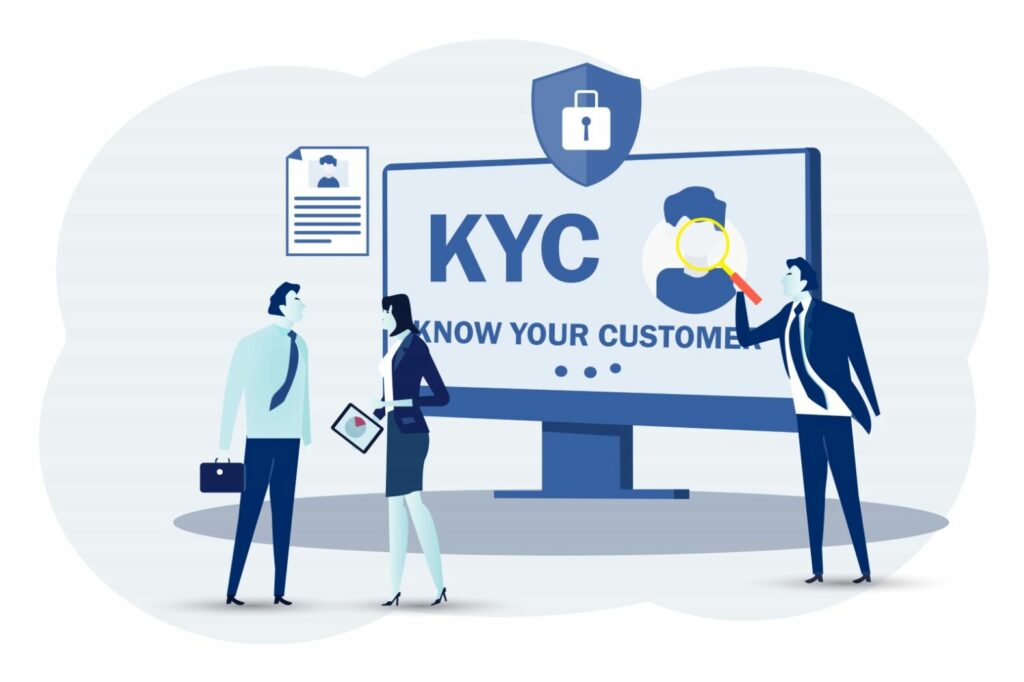Beyond Compliance: KYC (Know Your Customer) and Identity Verification
Do you know your customer? Where transactions occur at the speed of a click and where onboarding processes set the stage for seamless interaction, verifying the legitimacy of users and safeguarding against fraudulent activities is crucial. This is where the Know Your Customer (KYC) process and reliable identity verification step in as the gatekeepers of secure transaction. Let’s delve into the world of KYC, shedding light on its significance for many organizations worldwide.
Understanding the KYC Process
KYC is a set of procedures designed to verify the identity of a customer before they engage in financial transactions or access certain services. Whether opening a bank account, signing up for a new online platform, or conducting financial transactions, the KYC process plays a big role in establishing the true identity of individuals. The process helps businesses prevent penalties, fight fraud, and mitigate financial crimes.
The KYC Compliance Requirements
Governments and regulatory bodies around the world have recognized the significance of KYC in combating financial crimes, money laundering, and terrorist financing. As a result, requirements have been established to ensure that businesses and financial institutions adhere to standardized procedures.
KYC compliance typically involves the collection of key information such as name, address, date of birth, and official identification documents like passports or driver’s licenses. The process may also include additional steps like verifying the authenticity of documents through advanced technology, facial recognition, or biometric verification.
While KYC regulations differ across the globe, certain common requirements persist universally. These include:
- Proof of Identity (POI): Individuals must provide a valid identity document, such as a passport, national ID card, or driver’s license.
- Proof of Address (POA): Verifying the customer’s residential address is a standard requirement, often accomplished through utility bills, bank statements, or government-issued documents.
- Date of Birth Verification: KYC processes universally involve confirming the customer’s date of birth, ensuring compliance with age-related regulations.
- Biometric Information: Increasingly, KYC processes incorporate biometric data, such as fingerprints or facial recognition, to enhance identity verification accuracy.
- Risk Assessment: KYC regulations commonly necessitate a thorough risk assessment of customers to identify and mitigate potential threats, aligning with anti-money laundering (AML) and counter-terrorism financing efforts.
- Ongoing Monitoring: Continuous monitoring of customer transactions and behavior is a shared requirement to detect and report suspicious activities promptly.
- Politically Exposed Persons (PEP) Checks: Businesses are often obligated to conduct checks to ascertain whether a customer holds a prominent public position, as these individuals pose a higher risk for corruption and illicit financial activities.
- Customer Due Diligence (CDD): Implementing a robust CDD process is crucial, involving in-depth scrutiny of a customer’s background, business associations, and financial activities.
Importance of Reliable Identity Verification:
- Preventing Fraudulent Activities: Reliable identity verification acts as a robust deterrent against fraudulent activities. By confirming the legitimacy of users, businesses can mitigate the risk of identity theft, unauthorized access, and other fraudulent schemes.
- Compliance with Regulations: KYC compliance requirements are not just a set of guidelines; they are legal obligations imposed by regulatory authorities. Failing to comply with these regulations can result in severe penalties, legal consequences, and reputational damage for businesses.
- Building Trust and Credibility: For customers, knowing that a business prioritizes the security of their personal information builds trust. When users are confident that their identity is protected, they are more likely to engage in transactions and establish long-term relationships with the service providers.
- Enhancing Financial Security: Financial institutions are prime targets for criminals. Reliable identity verification not only protects customers but also fortifies the financial system by preventing illicit funds from entering legitimate financial channels.
- Streamlining Operations: KYC processes, when well-designed and efficient, can streamline onboarding and other operational aspects for businesses.
As technology continues to advance, KYC processes are evolving as well. The integration of artificial intelligence, biometrics, and blockchain technology is enhancing the efficiency and accuracy of identity verification, making the KYC process more robust.
In conclusion, the KYC process and reliable identity verification are not mere formalities; they are the pillars that uphold the integrity of transactions in our interconnected world. By KYC compliance requirements, financial interactions are not only seamless but also fortified against the evolving landscape of identity fraud, thereby creating a safer environment.
Keesing Technologies Meets KYC Requirements
With strong expertise in ID verification for 6,000+ organisations, Keesing has been a leader in the industry since its founding in 1911. Read our business case for Paysafe and Faasen to see how Keesing has enhanced their KYC process.
Whether you have a manual or automated procedure, Keesing can streamline your identity verification and KYC processes, for an accurate result and seamless experience.
AuthentiScan brings together best-in-class automated ID document verification with biometric identity proofing. As for manual checking, we offer DocumentChecker a world-renowned ID document reference database. While Keesing DaaS gives you access to data sets for reference and machine learning tailored to your needs.
With Keesing verification solutions, you are always connected to a continuously updated and trustworthy document verification resource to improve your KYC onboarding. Contact us below for any inquiries and we are happy to be in touch with you.

